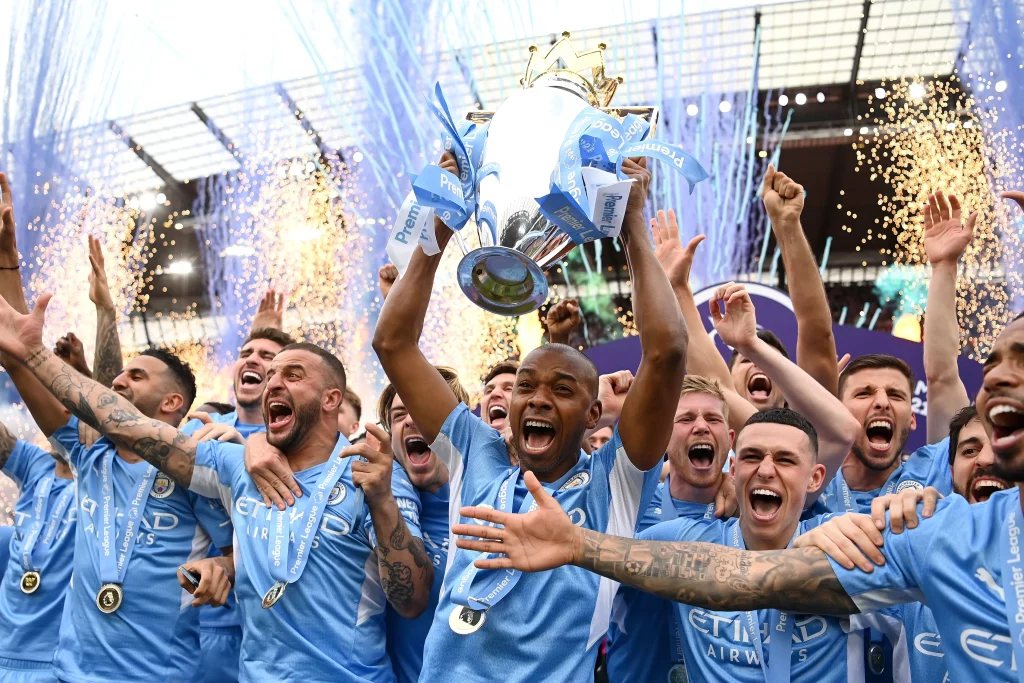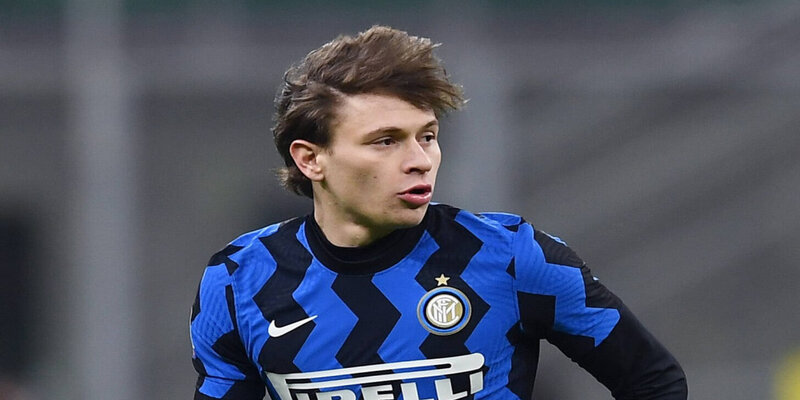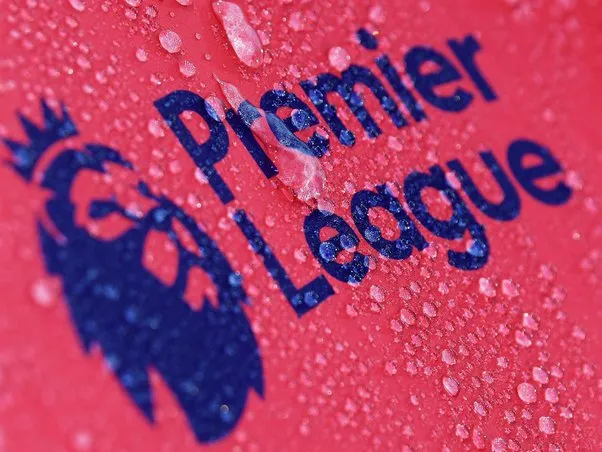The Premier League, a name that has become synonymous with the pinnacle of professional football, has captivated audiences worldwide. Its meteoric rise from a domestic league to a global phenomenon is a testament to the power of the beautiful game and the unwavering passion of its fans. In this comprehensive article, we delve into the rich history, evolution, and impact of the Premier League, exploring the factors that have contributed to its unparalleled success.
The Inception and Early Years of the Premier League

The Formation of the Premier League
The Premier League’s journey began in the early 1990s, a time of significant change within the English football landscape. Dissatisfied with the revenue distribution and lack of commercial opportunities within the existing Football League system, the top clubs decided to break away and form a new, more lucrative league.
- The Breakaway Decision: In 1992, the 22 clubs that made up the First Division of the Football League voted unanimously to establish the Premier League, a move that would transform the face of English football forever.
- Securing Broadcast Rights: One of the key driving forces behind the Premier League’s formation was the desire to secure more lucrative television broadcasting rights. The league’s inaugural season in 1992-93 saw a groundbreaking £304 million deal with Sky Sports, a move that would set the stage for the league’s global expansion.
The Inaugural Season and Early Dominance
The Premier League’s inaugural season in 1992-93 was marked by both excitement and uncertainty. Fans eagerly anticipated the new era, while the established order of English football was shaken to its core.
| Team | Points | Goals Scored | Goals Conceded |
|---|---|---|---|
| Manchester United | 84 | 67 | 31 |
| Aston Villa | 75 | 57 | 40 |
| Norwich City | 68 | 61 | 54 |
- Manchester United Triumph: In the first season, it was Manchester United who emerged victorious, securing the inaugural Premier League title under the guidance of legendary manager Sir Alex Ferguson.
- Increased Competitiveness: While Manchester United’s dominance was a constant in the early years, the Premier League also saw the rise of other formidable teams, such as Blackburn Rovers, Arsenal, and Chelsea, who challenged for the title in the following seasons.
The Globalization of the Premier League

Expanding Reach and Audience
The Premier League’s global appeal has been a key factor in its meteoric rise. Over the years, the league has strategically expanded its reach, captivating audiences worldwide.
- International Broadcast Deals: The league has secured lucrative television broadcast deals in numerous countries, ensuring that Premier League matches are watched by millions of fans across the globe.
- Digital Transformation: The Premier League has embraced the digital age, leveraging platforms like social media and online streaming to engage with its ever-growing international fan base.
Talent Attraction and the Rise of Foreign Players
The Premier League’s global appeal has also attracted some of the world’s best football talent, further enhancing the quality and competitiveness of the league.
- Influx of Foreign Players: The Premier League has witnessed a steady influx of talented players from around the world, bringing a diverse array of skills and styles to the English game.
- Increased Competitiveness: The presence of world-class foreign players has raised the overall level of competition within the Premier League, ensuring that each match is a thrilling spectacle for fans.
The Premier League’s Impact on the Global Game
The Premier League’s global influence has extended beyond its borders, shaping the landscape of football worldwide.
- Tactical and Stylistic Innovations: The Premier League has been a breeding ground for tactical and stylistic innovations, with managers and players experimenting with new approaches that have been adopted by other leagues.
- Talent Development and Export: The Premier League has become a platform for developing and nurturing young talent, many of whom have gone on to represent their national teams and move to other top European clubs.
The Business of the Premier League

Commercialization and Revenue Growth
The Premier League’s commercial success has been a driving force behind its global dominance. The league’s ability to generate immense revenue has allowed it to invest in infrastructure, player salaries, and the overall growth of the game.
- Sponsorship and Advertising Deals: The Premier League has secured lucrative sponsorship and advertising agreements with some of the world’s biggest brands, further enhancing its commercial appeal.
- Broadcasting Rights: The league’s television broadcasting rights have become increasingly valuable, with the latest domestic and international deals reaching astronomical figures.
Financial Fair Play and Sustainability
In response to concerns about the financial stability of football clubs, the Premier League has implemented measures to promote financial responsibility and sustainability.
- Financial Fair Play Regulations: The league has introduced Financial Fair Play (FFP) regulations, which aim to ensure that clubs operate within their means and maintain financial stability.
- Improved Financial Management: The implementation of FFP has led to more prudent financial management among Premier League clubs, with a focus on long-term sustainability and responsible spending.
The Premier League’s Impact on Local Communities
The Premier League’s influence extends beyond the pitch, as the league and its clubs have made significant contributions to the communities in which they operate.
- Community Engagement: Premier League clubs have actively engaged with local communities, supporting initiatives that focus on education, health, and social inclusion.
- Economic Impact: The Premier League’s presence has had a positive economic impact on the local areas surrounding the clubs, generating jobs, revenue, and opportunities for businesses.
The Rivalry and Competitiveness of the Premier League

The Fierce Competition Among Top Clubs
The Premier League is renowned for its intense rivalries and fierce competition among the top clubs. This has been a key factor in the league’s enduring appeal and the captivating nature of each season.
- The “Big Six” Dominance: In recent years, the Premier League has been dominated by a group of six elite clubs – Manchester United, Manchester City, Liverpool, Chelsea, Arsenal, and Tottenham Hotspur.
- Sustained Competitiveness: Despite the dominance of the “Big Six,” the Premier League has maintained a high level of competitiveness, with each season offering the potential for surprise results and unexpected title challenges.
The Rise of New Contenders
While the “Big Six” have been the consistent powerhouses of the Premier League, the league has also witnessed the emergence of new contenders, challenging the established order.
- Leicester City’s Fairy-Tale Title Win: The 2015-16 season saw the unexpected triumph of Leicester City, a team that defied the odds and won the Premier League title, captivating the world with their remarkable underdog story.
- Continued Unpredictability: The Premier League’s ability to produce such unexpected results and title-winning stories has only added to its allure, keeping fans on the edge of their seats season after season.
The Impact of Managerial Influence
The Premier League’s competitiveness is not only reflected in the performance of the players but also in the strategic decisions and tactical acumen of the managers.
- The Managerial Carousel: The Premier League has witnessed a constant turnover of managers, with clubs often making bold decisions to replace underperforming or high-profile managers in an effort to gain a competitive edge.
- Managerial Genius: The league has been graced by the presence of some of the world’s most accomplished and innovative managers, who have left an indelible mark on the game through their tactical brilliance and man-management skills.
The Passion and Traditions of the Premier League

The Unwavering Devotion of Fans
The Premier League’s success is largely attributed to the unwavering devotion and passion of its fans, who have played a crucial role in shaping the league’s identity and atmosphere.
- Matchday Experiences: Premier League stadiums are renowned for their electric atmosphere, with fans creating a captivating spectacle through their chants, songs, and unwavering support for their respective clubs.
- The Fan Culture: The Premier League’s fan culture is a testament to the deep-rooted traditions and loyalties that have been passed down through generations of supporters, creating a sense of community and belonging that transcends the boundaries of the game.
The Enduring Legacy of Historic Clubs
The Premier League’s rich history is intertwined with the legacies of its historic clubs, each with their own unique identity and loyal fan base.
- The Storied Clubs: Clubs like Manchester United, Liverpool, Arsenal, and Chelsea have long been the cornerstones of English football, with their storied histories and iconic players etched into the collective consciousness of fans.
- The Enduring Traditions: These historic clubs have maintained their traditions and identities, even as the Premier League has evolved, ensuring that the essence of English football remains intact amidst the league’s global expansion.
The Premier League’s Impact on the National Team
The Premier League’s influence has also extended to the performance of the English national team, with the league’s high-intensity and competitive nature shaping the development of domestic talent.
- Talent Nurturing: The Premier League has provided a platform for young English players to showcase their skills and gain valuable experience, ultimately contributing to the growth and success of the national team.
- Tactical Advancements: The tactical innovations and stylistic diversity present in the Premier League have also had a positive impact on the approach and performance of the English national team.
Conclusion
The Premier League’s rise to prominence is a testament to the power of the beautiful game and the unwavering passion of football fans worldwide. From its inception in the early 1990s to its current status as a global phenomenon, the league has consistently captivated audiences, showcased world-class talent, and driven innovation within the sport.
The Premier League’s success is multifaceted, encompassing its commercial prowess, the fierce competitiveness among top clubs, the enduring legacy of historic teams, and the deep-rooted traditions of its devoted fan base. As the league continues to evolve and adapt to the changing landscape of the sport, its ability to maintain its allure and relevance will be crucial in cementing its position as the pinnacle of professional football.
The Premier League’s impact extends far beyond the pitch, influencing the development of domestic talent, contributing to local communities, and shaping the global game. As the league enters its next chapter, the world eagerly awaits the next chapter in its captivating journey, one that promises to deliver more unforgettable moments and solidify the Premier League’s status as a true icon of the sport.


